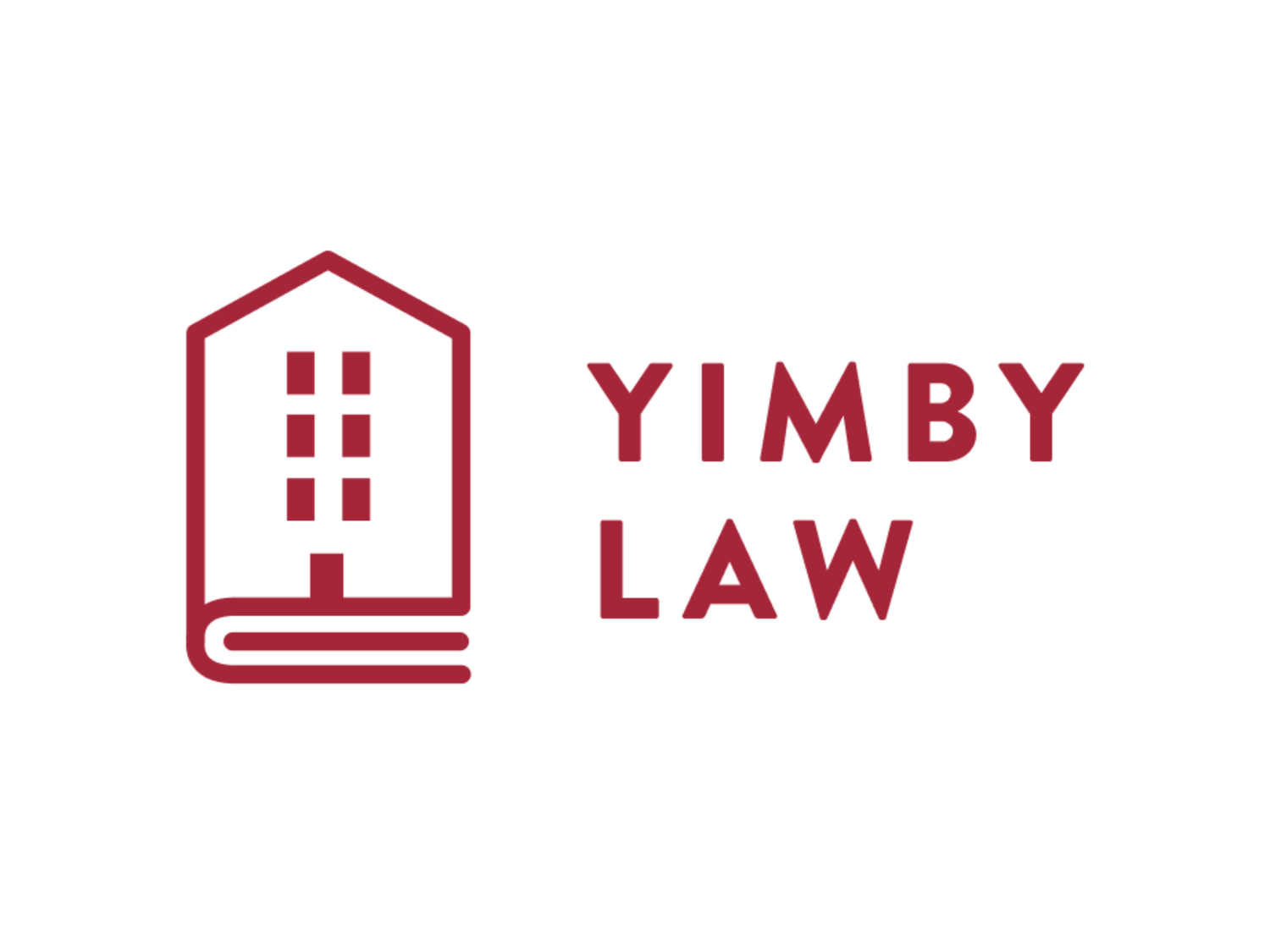Press Release: Pro-Housing Coalition Announces Action at LA Hearing, Urges Mayor's Office to Approve 100% Affordable Housing
/Contact: Jae Garner
LOS ANGELES, CA — Los Angeles illegally delayed 1,500 affordable homes after walking back provisions in the Mayor’s Executive Directive 1 (ED1). YIMBY Action, YIMBY Law, Urban Environmentalists, Abundant Housing LA, and Inner City Law Center are rallying at the hearing for two of these housing projects on Tuesday, September 19th. Activists hope the city approves these homes and adjusts the directive to its original form to allow similar projects to be approved in the future.
“Quickly increasing the availability of affordable housing is essential to ending LA’s homelessness and housing crisis. ED1 does just that. But stopping 1,500 affordable homes—proposed without any public subsidies— is irresponsible when every public subsidy for affordable housing is oversubscribed,” said Mahdi Manji, Director of Public Policy at Inner City Law Center. “LA needs innovative ways to build affordable housing. Rejecting these projects is equivalent to rejecting nearly $750,000,000 dollars of public subsidies. We just can’t do that when our families need these affordable homes.”
On December 16th, 2022, Mayor Bass’s office announced the signing of ED1, to dramatically accelerate and lower the cost of building affordable housing. The directive significantly reduced the number of steps required during the approval process for new homes, making many affordable housing projects financially feasible to propose and build. Housing advocates praised this action, and developers have since proposed dozens of projects representing over 7,500 homes under the directive according to city staff.
However, the city revised provisions of ED1 on July 7th to exempt single-family-only zones as well as locations where the city’s General Plan differs from its zoning code. The California Department of Housing and Community Development (HCD) send the city a technical assistance letter on September 14th urging them “...to expeditiously process all ED1 projects in accordance with the rules and regulations that were in effect at the time the preliminary applications were complete.”
In addition to blocking future projects in these places from using the streamlining from ED1, the city retroactively applied these new exemptions from ED1 to five projects proposed before the revisions were made. These five projects represent 1,500 affordable homes proposed in single-family-only zones, and other places where the city’s general plan allows more homes on the sites than the city’s zoning code.
“In this housing crisis, every affordable home is important,” said Cynthia Clemons, Digital and Field Organizer for Abundant Housing LA. “In this case, 1,500 affordable homes are on the table, and we need them as fast as possible.”
Los Angeles is experiencing a severe housing shortage, especially for people with low incomes. According to the National Low Income Housing Coalition, the Los Angeles metro area has a shortage of over 627,000 affordable homes for people who make 50% of the area median income or less. City records demonstrate that Los Angeles is losing more affordable homes than it builds every year. From 2010 to 2019, the city lost over 111,000 affordable homes and only built 13,000 new ones.
Additionally, UC Berkeley researchers found that building more urban infill is among the most impactful climate actions local jurisdictions can take. Specifically, in the neighborhood of Sherman Oaks where one of the proposed projects is located, building urban infill is the number one most impactful local action they can take. These homes will reduce vehicular emissions by allowing more local workers to live nearby, and by increasing walkability for existing residents.
“We can’t say we are taking real climate action unless we start building infill housing that lets people drive less,” said Joanna Gubman, Environmental Director at YIMBY Action and Executive Director of Urban Environmentalists. “These projects are walking distance from groceries, schools, parks, and more – exactly what we need to stop habitat-destroying sprawl and avoid carbon emissions from cars and concrete.”
YIMBY Action, YIMBY Law, and its pro-housing partners will continue to advocate for Los Angeles to approve these homes and allow similar projects to be streamlined as well.
“By showing up to the hearing, we hope to convince the city to do the right thing and approve these homes,” said Sonja Trauss, Executive Director of YIMBY Law. “If they don’t, YIMBY Law is prepared to take legal action. Affordable housing can’t wait, especially in Los Angeles.”

